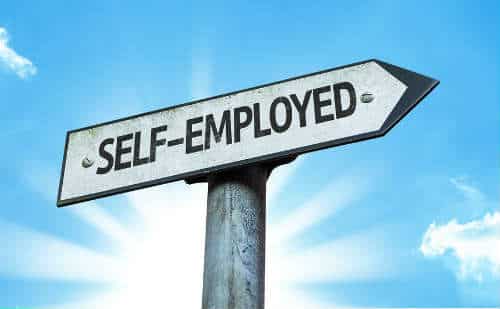Q: I am a self-employed massage therapist in Colorado. I have made over $50,000 a year, but this year is different. My income is down by half, and I owe $9,000 in credit card debt. I eat only when I have the money to eat. I spend nothing more that gas and dog food as extras other than bills. What should I do next?
A: Anytime you have a substantially reduced income, or an outright elimination of income, it means you have to completely overhaul your budget. A few tweaks, changes and minor pullbacks here and there just won’t do. You’ve indicated that your income is off by 50%. As a result, you must drastically slash your current or previous spending, and also think about creative ways to raise cash. Otherwise, you risk falling deeper into debt.
How to Overhaul Your Budget
Before you look at “extras,” and any “luxuries” you may be spending money on, start by examining the very basics: like your phones, housing and car. Often, the things that we think are “necessities” have to be sacrificed just temporarily when there is a major shift in income.
Since you are a self-employed as a massage therapist, it may be the case, for example, that you have multiple phones. Perhaps a cell phone, a business phone service and a personal home phone. If so, consider which one – or maybe even two – of those phones you can live without on a temporary basis until you restore your income. This is the kind of thinking that will help you figure out how to get through this economic rough patch. This advice is also applicable to anyone who:
• Has been laid off recently, for a long time, or expects to be unemployed soon
• Has seen a big decline in self-employment income
• Has had has their hours on the job cut
• Has had their hourly salary or regular pay slashed
• Has found a new job that is substantially less than the income previously earned
Lifestyle Choices
Overhauling your budget also means making tough choices about your lifestyle. An example of a major lifestyle change might be considering where you live. Do you rent or own? Can you find cheaper housing, a less expensive neighborhood, or is bringing in a roommate an option? Also, what about the car you mentioned?
You said you drive only when you must. Can you sell the car and use public transportation? If you have car payments, is getting a friend or relative to take over those car payments at all feasible? I recognize that these are big shifts. But sometimes you have to dig deep when things are far more challenging than the norm. That’s why I usually recommend these strategies for people who are extremely deep in debt, or for those who have had major reductions in their income.
Negotiating and Bartering
As you consider your options, don’t forget about one of the best budget-saving strategies of all: negotiating.
Whenever you are about to buy something, ask for a discount. Ask for a discount for paying for goods and services, like medical care, in cash instead of with credit. Ask for a discount if you’re at a store and you’re buying two or three of an item, instead of just one. You can even ask for, and negotiate, to receive products and services free of charge – if you’re willing to exchange your time, talents and services as well.
For instance, you said you are a massage therapist. I imagine this is a stressful period for accountants. Instead of paying a CPA to do your business tax returns, maybe you can offer to provide a one-hour massage or treatment to your accountant. The idea is to think creatively about how you can both exchange value – without exchanging dollars.
That’s a win-win situation for both parties and one that will help you to more quickly bounce back from your economic slump.










